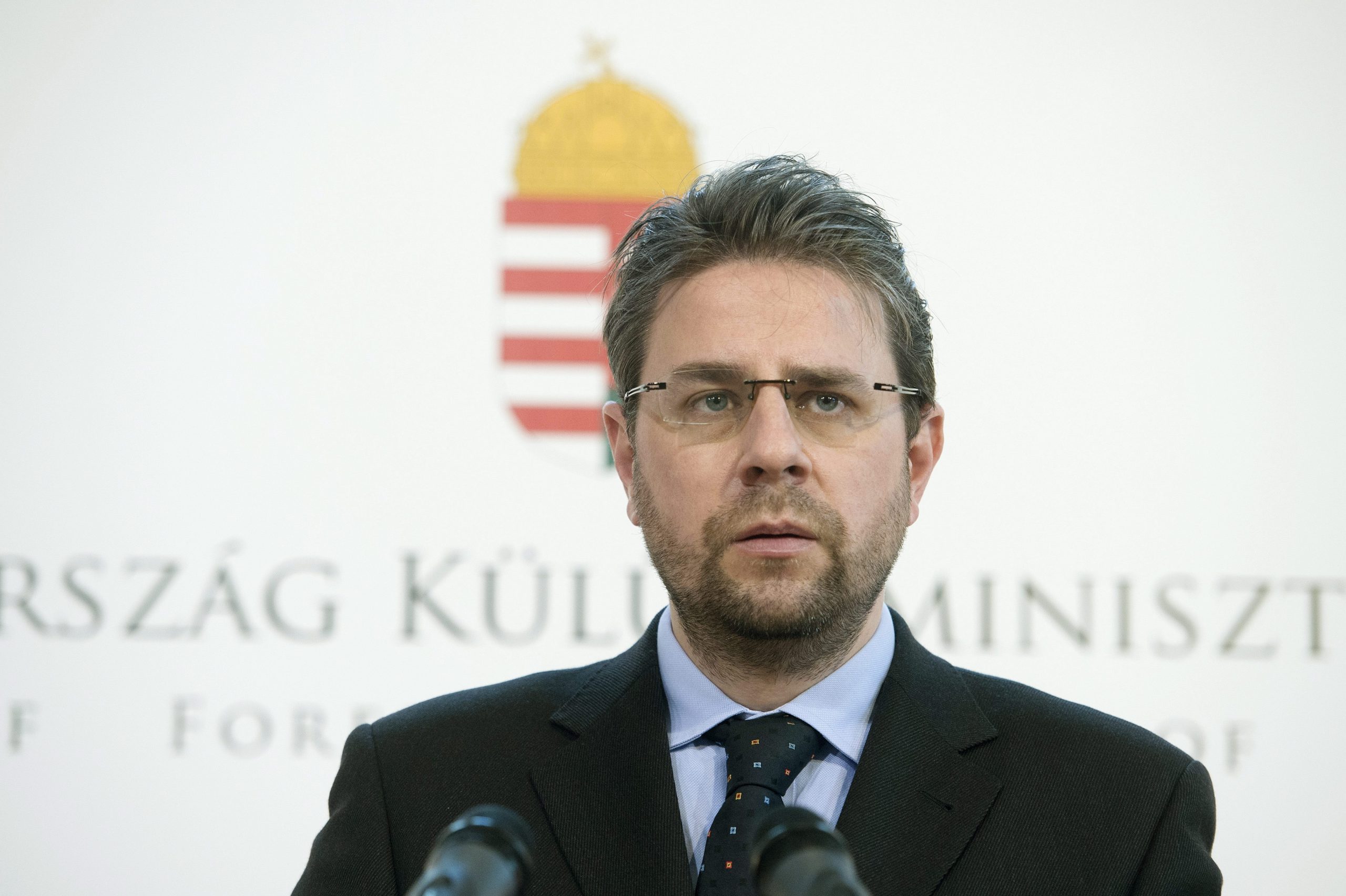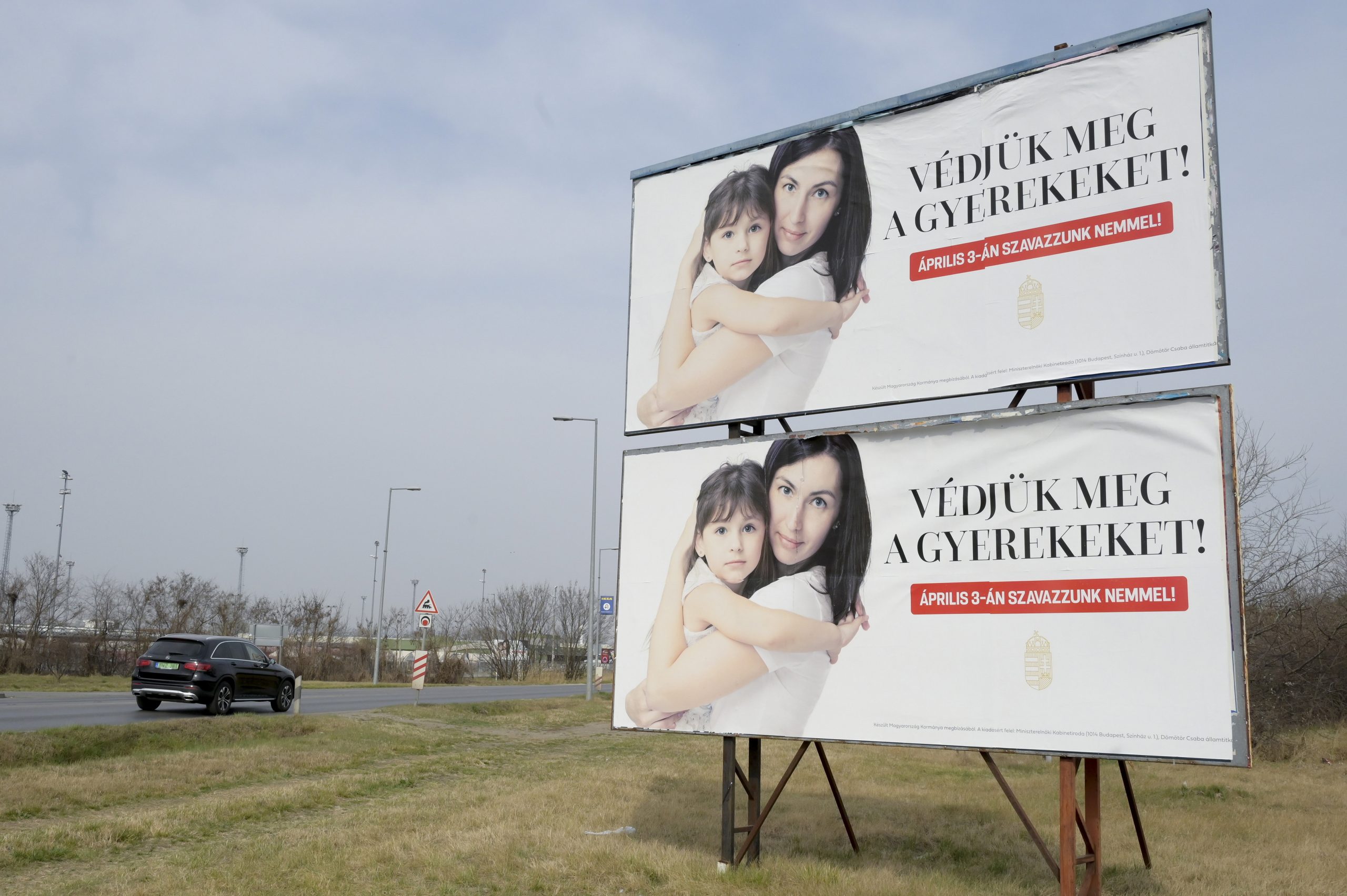
Gábor Kaleta was sentenced to suspended prison time and fined HUF 540,000 (EUR 1,535).Continue reading

A referendum (the “child protection referendum”) is also being held today, on the day of the parliamentary elections. This has never happened since the regime change. It could not have happened, because until recently, the law prohibited holding a referendum close to a parliamentary election, but it was amended in the autumn.
Following the outrage caused by paedophile crimes, Fidesz launched a campaign last spring to toughen penalties for child sex abusers. In the previous months, the press reported several serious crimes, among them the one which was committed by Hungary’s former ambassador to Peru, appointed by the Fidesz government, who had previously been press chief in several ministries. The amendment was called an anti-pedophilia law by its initiator, Fidesz parliamentary group leader Máté Kocsis, and was also referred to as “lex Kaleta” by him, in reference to the name of the Peruvian ambassador.
The tightening was also supported by the opposition parties. However, after weeks of negotiations, shortly before the final vote, Fidesz added amendments to the text of the law, including a ban on “the promotion of homosexuality.” Human rights activists and the opposition said that this confused paedophilia with homosexuality, and were therefore unwilling to support the amendment. Fidesz-KDNP then campaigned on the grounds that the opposition was on the side of child abusers.
After the law was passed, the Orbán government announced a national consultation to ask people’s views on the law after the vote. Shortly afterwards, although the consultation was still ongoing, the government suspended the ban on referendums, which it had imposed because of the epidemic situation, and at the same time Prime Minister Orbán also announced that a referendum would be held on child protection, such as a ban on sex-change operations on children. Originally, several questions were to be put on the ballot, but in the end only four will appear.
The questions of the referendum are the following:
Fidesz argued that the law, which was already passed last summer, should be confirmed in a national consultation and then in a referendum, in order to protect the law and prevent the opposition from changing it after a possible election victory. The Orbán government also argued that since the so-called child protection law had received a lot of criticism on the international stage, the Hungarian people’s stand would strengthen the government’s position in these human rights debates.
Originally, the referendum could not have been held on the same day as the national election, and Fidesz did not seem to be planning to do so. Gergely Gulyás, the head of the Prime Minister’s Office, earlier suggested December 2021 or early 2022 as possible dates.
But an opposition amendment came in handy for the government. At the beginning of September, Tímea Szabó, co-chair of the leftist green Párbeszéd party, tabled an amendment that would have abolished the ban on holding a national referendum and a parliamentary election on the same day. The opposition had also initiated referendums against the Chinese university Fudan, planned by the Orbán government to be built in Budapest using Hungarian taxpayer money and Chinese loans, and for extending the duration of the job-seeker’s allowance. Although many warned the opposition politician at the time that her initiative could backfire, she did not withdraw it. And the Fidesz-KDNP majority in parliament changed the law.
Fidesz campaigned for voters to vote no on all four questions. Given the wording of the questions, it is likely that the overwhelming majority of respondents will do so. The opposition, meanwhile, is encouraging people to vote ‘invalid.’ A national referendum is valid if more than half of all voters cast a valid vote, and it is conclusive if more than half of the voters who cast a valid vote gave the same answer to the question.
If many opposition voters act accordingly, it is possible that the referendum will end up being invalid.
Since the counting of votes in parliamentary elections also tends to take several hours, the fact that a referendum is held at the same time is likely to push back the date for the announcement of the results even more. According to government information, the parliamentary election has priority in the vote count. In addition, as the four referendum questions are on the same sheet, it will take even longer to count them. It is therefore unlikely that the results will be available until late at night or even on Monday.
Featured photo illustration by Szilárd Koszticsák/MTI